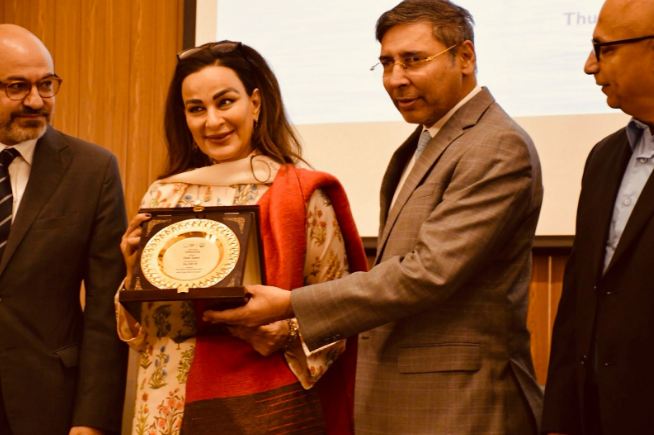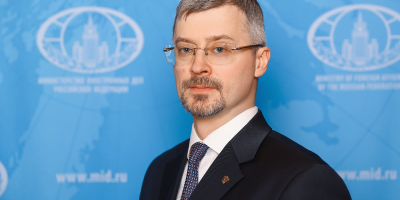Climate financing for developing countries should be a priority at COP 29: Sherry Rehman

ISLAMABAD, NOV 2 /DNA/ – Speaking at the Institute of Regional Studies (IRS)’ pre-COP29 panel discussion titled ‘Bridging the Gap: Humanitarian/Development Agencies and Climate Adaptation in Pakistan’ Senator Sherry Rehman underpinned the critical role of development organizations in fostering climate resilience through providing adequate funding.
Chairperson of the Senate Standing Committee on Climate Change, also underscored the need for local climate action backed by robust international financing. Advocating proactive measures in flood-prone areas to prevent escalating climate impacts, she urged major emitters to honour their Internationally Determined Contributions (IDCs) and called for a Global Goal on Adaptation that prioritises funding for on-ground initiatives.
Calling upon major emitters to commit to their Internationally Determined Contributions (IDCs), Senator Rehman emphasized that climate financing for the Global South should be directed towards on-ground adaptation initiatives, not just reporting.
In his remarks on the occasion, Amb. Jauhar Saleem, President of the Institute of Regional Studies (IRS) highlighted the potential role of COP29 in advancing climate adaptation efforts and ensuring essential funding. He also stressed upon the importance of decentralised approaches to climate adaptation —while ensuring that strategies are tailored to local contexts to address diverse climate challenges effectively — and shared that IRS was conducting a number of pre-COP discussions to generate concrete recommendations for COP-29.
Dr Altaf Abro, Head of Mission for Secours Islamique France (SIF) Pakistan, emphasized the importance of linking development funds with humanitarian resources to enhance adaptation efforts and enable more effective resilience strategies.
Dr Samuel Rizk, Resident Representative of UNDP Pakistan, stressed the need for coordinated government action in addressing climate change. He also invited attention to rapid population growth and worsening climate impacts as significant challenges for Pakistan, which were deepening vulnerabilities for marginalised communities.
Bilal Anwar, CEO of the National Disaster Risk Management Fund (NDRMF), accentuated the need for transformative adaptation initiatives to meet the mounting challenges of climate change. He also called for mobilisation of resources, enhancement of expertise, and inclusion of indigenous practices to build resilience and drive sustainable climate action.
Dr. Rizwan Naseer, Senior Research Fellow at IRS, underscored the importance of aligning humanitarian responses with development strategies to create a more integrated approach.
Muhammad Arif Goheer, Executive Director of the Global Climate Change Impact Study Centre (GCISC), brought out the urgency for effective adaptation strategies in Pakistan’s agricultural sector and called for climate-smart farming practices and improved water management to safeguard this vital sector.
Isabel Bogorinsky, Head of Programs at Welthungerhilfe (WHH) Pakistan, highlighted the threat that climate change poses to food security and emphasized upon the vital role of government organisations and think tanks in building resilience and developing strategies to mitigate climate risks while enhancing adaptive capacities.
Ahmed Kamal, former Chairman of the Federal Flood Commission (FFC), discussed government-led disaster risk reduction initiatives, including the 10-year National Flood Protection Plan and advancements in flood forecasting systems.
Hassan Hayat, Programme Producer at PTV Home, underscored the impact of documentaries in effectively communicating the severe consequences of climate change.
The event brought together a range of national and international experts, policymakers, heads of development & humanitarian organizations.
Related News

Turkiye and Iran can’t be excluded from regional proceedings, Iranian expert
ISLAMABAD, DEC 23 /DNA/ – “Turkiye and Iran are natural partners because of their closeRead More

Islamabad roundtable highlights growing Russia–Pakistan cooperation
In his opening remarks, Russian Ambassador Albert P. Khorev highlighted the growing momentum in Russia–PakistanRead More


Comments are Closed